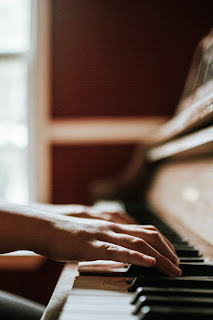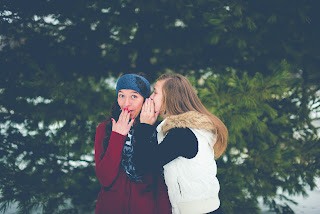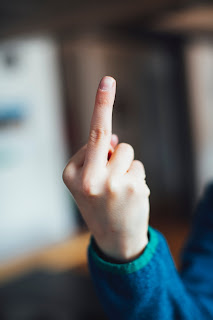At the beginning of COVID my daughter Lucia quit piano. After two zoom lessons, she chucked it. Lucia was never a classical pianist. Her teacher taught her to play songs that she wanted to play. That meant that our house was filled with John Legend, Bruno Mars, Adele, Katy Perry, and leagues of other hip hop, pop and rock songs. Lucia would learn the music and then sing along.
I’m completely biased but I think Lucia has an amazing singing voice. When she plays and sings our whole house takes on a magical vibration. The piano corner lights up and everything else fades into the background. Lucia is in conversation with the piano — singing along to what she plays — but she is also communicating with us. As we listen to Lucia sing, we can hear her as herself, that deep part of her being that only she knows, that only she can unleash.
For years it’s been a running joke in our house that when Lucia plays, my partner Nancy, regardless of what she's doing at that moment, starts to cry with emotion.
When Lucia made the decision to stop lessons, I had to let her. She was fifteen at that time and ten years of lessons would have to sustain her. For the first year after she quit piano Lucia hardly played. The stand-up piano sat quietly in the corner decorated with the random assortment of beach treasures and plants, her marked-up music and yellow pencil resting, as if frozen in time, on the upper panel.
I was sad when Lucia stopped playing piano because I felt like her music was a good balance for the other parts of her life. It felt like something deeply internal, something that came from within her. It felt like she transported herself somewhere else when she played. I wanted that for her. And it transported me too. I had taken for granted all those years of hearing Lucia play and sing. During that music drought in our home, I’d occasionally ask Lucia to play, but she’s not that kind of person; she doesn’t play on demand. In fact, she actively won’t play on demand.
For a while, to fill the void of Lucia’s playing, I tried to learn piano myself. I had a few years of lessons growing up and Lucia helped me learn how to use the pedal as well as some strategies for positioning my fingers on the keys. With my ragtag collection of skills, I chose a favorite song, “Shallow” by Lady Gaga and Bradley Cooper, and learned the piano part. Once I’d mastered that I added the voice. It took me over a month of practicing to produce a crude, condensed version of the song.
I couldn’t believe how hard it was to play and sing at the same time. It felt like rubbing my stomach and patting my head at the same time while balancing a spoon on my nose. Each time I got through the song I felt exhausted and accomplished. The experience gave me a new appreciation for this talent that Lucia has mastered. I envy her ability to find a song, learn it, play it, and sing. What a gift to be able to produce that combination of sounds.
A few months ago Lucia started playing again. At random times of the day, she’d sit down and scroll through her phone to find the list of songs she keeps, and look up the chords. Within minutes she’d be playing Beyonce, Amy Winehouse, or Brandi Carlile, singing along in her beautiful voice. Oh, how I’d missed this! And at the same time, it was like no time had passed. Lucia wasn’t rusty or frustrated. She played and sang beautifully. All those years of lessons were in her. She still had it!
These days Lucia plays more regularly. Last night when she was working through a list of chores I had given her she said, “Can I just play piano for a minute, and then I’ll finish?”
“Of course,” I said, without hesitation. The answer is always yes to the piano. If she’d asked me if she could just put on mascara and then finish her chores I would have replied with a hard NO.
During her chore break, Lucia spent some time figuring out songs on the newest Adele album. I pretended to sweep the kitchen, holding onto this moment, absorbing it with the knowledge that this could go away again.
Lucia is seventeen now. In a few years, she’ll be out of the house and our piano will become dormant, taking on the role of a glorified plant stand again. Maybe when she comes home for visits she’ll light up the piano corner again. I hope that’s the case, but I know my days of hearing Lucia play are limited.
I wonder if Lucia will find other pianos in her future — in the lounge of her college dorm, at a friend’s house in a city far away from here, in the quiet corner of a restaurant, in the home she creates for herself one day. For my sake, and for hers, I hope so.




















